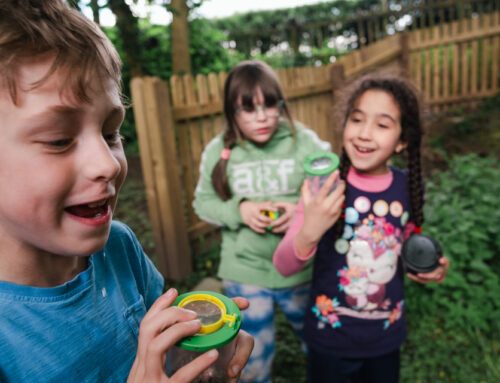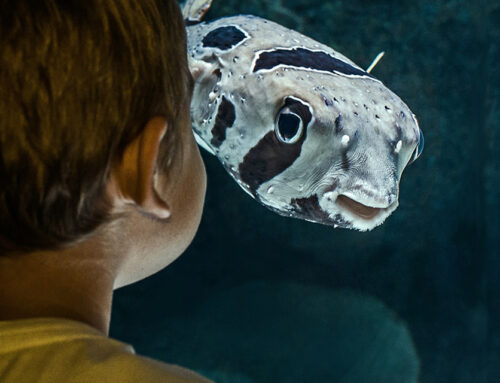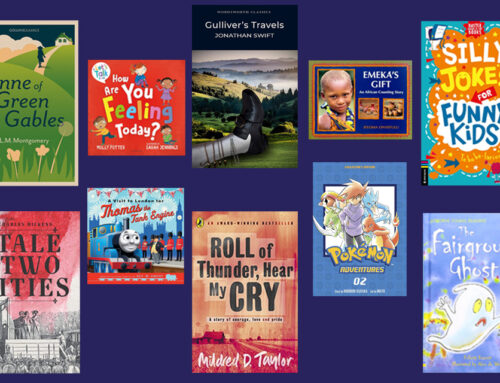How to Understand Fixed Mindset and Encourage Growth Mindset in High Potential Learners
The buzzwords ‘growth mindset’ and ‘fixed mindset’ have caused a stir since 2006, when educational researcher and psychologist Carol Dweck released her book, Mindset; the new Psychology of Success.
So, what are these ‘mindsets’ and can understanding them help parents and educators of youngsters with high learning potential?
What is a ‘growth mindset’?
Growth mindset is the belief that one can boost intelligence and develop new skills through effort, tenacity, experience and learning from others. We may each follow a different path, but fulfilling one’s individual potential can require perseverance and possibly hours or years of hard work.
While holding a growth mindset, students are not intimidated by effort; they see it as a means to an end that simply reflects the complexity of the task, stimulates them and activates their ability.
What is a ‘fixed mindset’?
A fixed mindset believes that certain skills are ‘for others’ and that one’s ability levels are set in stone and cannot be improved upon. As Dweck describes, “Intelligence is seen as just a fixed trait. You have a certain amount and that’s that”.
Hand-in-hand with this is the belief that effort is a bad thing – an undesirable indication that you don’t have (and never will) the required ability. This fixed mindset makes young and old alike afraid to tackle new projects or hobbies as they don’t want to ‘look stupid’.
What if my young learner is always ‘bored’, refusing to engage?
Since those in a fixed mindset see setbacks as embarrassing proof of their deficiencies, they will try to avoid any chance of a mistake by using strategies such as getting upset, defensive, using clever avoidance, blaming the learning materials or the teacher and acting ‘bored’. These are smokescreens; at home or in a learning environment, encouraging growth mindset can help.
My children have high learning potential and are able; however they shout and give up if they don’t produce amazing results first time. Would a growth mindset help?
The research definitely points that way. Carol Dweck says, “I believe the [fixed mindset] belief that if you have ability, you shouldn’t need effort, is […] why so many of our most promising students don’t fulfil their potential. They coast along, not trying that hard, [whereas on a daily basis] the other kids have to try – and one day they have to try too…and they can’t do it!”
With a child with high learning potential and their likely tendency towards perfectionism, the resilience needed for a growth mindset needs to be nurtured, modelled and practised – and by the setting of tasks at a challenging level. Set learning at too easy a level and children with high learning potential miss out on the double-edged opportunity to ‘try and fail’. However, with the right mindset culture at home and at school, small children with high learning potential begin to grow into adults who still ask for help when needed, enjoy problem solving and are largely unaffected by obstacles and setbacks.
What simple things can I do?
Give Praise Appropriately! Studies have shown that praising ‘Intelligence’ (e.g. “Wow – you’re so clever!”) encourages fixed mindset behaviour and creates mental blocks. However, by praising ’Process’ (e.g. “Wow – you really focused well and had a great strategy!”), you will nurture a growth mindset attitude of positive effort and approach.
Also, embrace the phrase “Not Yet”. For example, “I can’t do that…yet!” or “I’m learning, but I have not yet moved up a whole level in swimming”. Use this kind of wording when you discuss school expectations or home education plans involving ‘flightpaths’, ‘working towards’ or being ‘on track’ for projected music exams, SATs, GCSE grades, or similar.
What can a youg person with high learning potential do on their own?
Learning an instrument, practising a sport, building a model from scratch…. These are the kinds of projects that demonstrate first-hand, how success has to be built in gradual stages of patient dedication and incremental improvements. Slow, hard-earned achievements can be extremely frustrating, yet simultaneously so ‘character building’ for a young person with high learning potential (or adult!)
When is the right age to introduce growth mindset appropriately?
It’s never too young! How a primary caregiver interacts with even a baby or toddler has been shown to predict that child’s mindset and desire for challenge 5 years later.
Your child might complete work very quickly; however, don’t automatically praise their speed; welcome challenge instead and say “Sorry – let’s do something harder that you can learn from”.
Also, at home or in a learning environment, Dweck says that it should be normal to talk about setbacks and to ask questions like “Who had a fabulous struggle today?”
What is ‘false growth mindset’?
‘False growth mindset’, has been identified where growth mindset is honestly championed in certain real-life learning environments, but, in reality, not fully understood or successfully implemented.
In 2016, Dweck updated Mindset to address this and highlighted the key warning signs of praising effort alone (unlinked to progress), telling learners they can do ‘anything’, or failing to create a growth mindset culture.
It is also worth remembering that each of us experiences a mixture of mindsets. For example, someone with predominantly a growth mindset can still frequently encounter circumstances that trigger closed mindset traits of defensiveness or anxiety.
What reliable resources are there?
Carol Dweck’s book ‘Mindset: The New Psychology of Success’ is a key resource, or watch one of her talks online, for example https://youtu.be/J-swZaKN2Ic
Potential Plus UK provides mindset-related advice sheets such as PA305 Inspiring Motivation to Learn, and PA324; Helping HLP Children to Develop Self-Regulation Skills or PA320; Bloom’s Revised Taxonomy (Thinking Skills).
There is a wealth of teaching resources at https://www.edutopia.org/article/growth-mindset-resources.
If you’re a fan of TED talks, https://childhood101.com/growth-mindset-videos/ suggests 10 growth mindset videos to share with children.
The research in Parent Praise to 1-3 Year-Olds Predicts Children’s Motivational Frameworks 5 Years Later, Gunderson et al, is summarised at https://www.ncbi.nlm.nih.gov/pmc/articles/PMC3655123/
For tips on avoiding pitfalls, try https://www.theatlantic.com/education/archive/2016/12/how-praise-became-a-consolation-prize/510845/ and https://www.tes.com/news/carol-dweck-where-growth-mindset-went-wrong or Carol Dweck’s own article on overcoming false growth mindset at https://www.edutopia.org/blog/recognizing-overcoming-false-growth-mindset-carol-dweck.
And for a bit of positivity, scroll these quotes at https://everydaypower.com/carol-dweck-quotes/
So…growth mindset or fixed mindset; how was your thinking?
And how will you now model future challenges?







